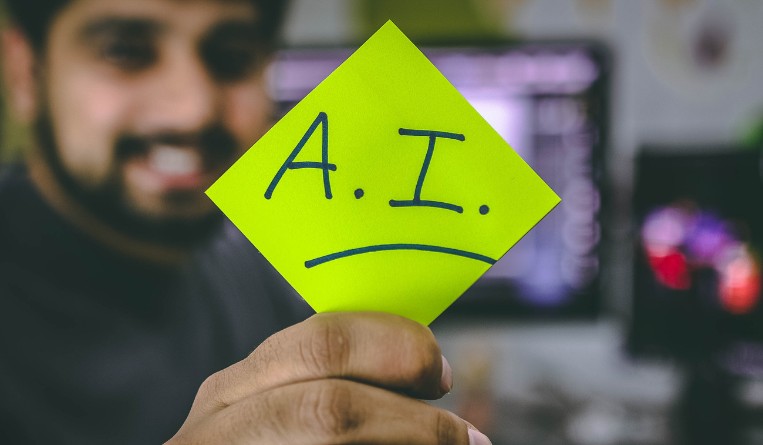Australian court ruling says it all: AI can be an inventor
12 August 2021

Australia’s Federal Court has ruled that artificial intelligence (AI) can indeed be an inventor.
The court recently arrived at such finding for Thaler v. Commissioner of Patents [2021] FCA 879 which involved inventions developed by AI.
The inventions were food and beverage containers with features on their sides that allow the containers to be joined together, thus making it easy for robots to handle them, as well as devices and methods involved in the creation of a light-emitting beacon.
In 2019, Professor Ryan Abbott of the University of Surrey filed the PCT application with Dr. Stephen L. Thaler as the applicant and the AI system DABUS (Device for the Autonomous Boot-strapping of Unified Sentience) as inventor.
Thaler, president and CEO of Imagination Engines, Inc., is a specialist in applied and theoretical artificial neural network technology, among others. Aside from owning the copyright to DABUS’s source code and the computer used for it, Thaler himself also operates the computer to use DABUS.

According to Abbott, the AI system was autonomously responsible for the substantial part of the job that produced the inventions.
Following a formalities check for the application in the national phase, The Patent Office rejected DABUS being named as inventor. Among others, the formalities check requires that the inventor’s name be included in the application.
The Patent Office stated that said inventor – DABUS – is not a natural person. It also said that DABUS cannot transfer or communicate by assignment and others, the invention to the applicant Thaler.
However, the court saw it otherwise.
Judge Beach ruled that AI can be named as inventor. Among others, Beach said that based on The Patents Act 1990 which does not offer a definition for “inventor,” an inventor can be both a natural person or thing and that there is nothing in it (the Act) that says otherwise.
Citing the Act’s paragraph 15(1)(c), Beach said that Thaler may be entitled to the patent granted to the invention for the following reasons: 1) DABUS is Thaler’s possession 2) he owns the copyright in DABUS’s source code 3) he owns and possesses the computer on which DABUS runs.
Beach also cited the Act’s paragraph 15(1)(b). Based on this, he said that Thaler may be entitled to the patent without the need for the inventor to own the invention and for the title to be derived by an assignment.
Ryan Boe and Paul Massey, senior associate and principal respectively, at Spruson & Ferguson in Sydney, do not entirely agree with Beach’s ruling.
“Justice Beach’s interpretation that an owner of an invention only needs to have the right to have an invention assigned to them (s15(1)(b)) and that an inventor is not required, downplays the fact that an originating inventor has initial rights to an invention,” said Boe.

“Justice Beach’s position that ownership of AI is sufficient to derive title (s15(1)(c)) assumes that the employer, Thaler, has complete ownership and control of the invention. However, the question is, what happens to inventions that fall outside the scope for which the AI was created, i.e., inventions developed by AI but which are tangential to the purpose of the particular AI. It is arguable that such inventions should be treated in a similar manner to inventions developed by an employee but which fall outside the scope of an employment contract, in which case, ownership remains with the employee, i.e., the original inventor,” said Massey. “The finding that chain of entitlement is entirely solved by one step of ownership of an inventor is problematic.”
Beach’s reasoning appears to be legally sound, said Boe and Massey, but alternative conclusions revolving around the issues mentioned above can be anticipated.
“It is very likely that this decision will be appealed and any long-term binding precedent will be set by a decision of an expanded Federal Court Bench or by the Australian High Court,” said Boe.
How will Beach’s decision, a groundbreaking one, affect the patent scene in Australia?
Apart from possibly sparking more patent applications if the decision is upheld on appeal, Boe and Massey believe the effect is minimal.
“The substance of inventions seeking patent protection will still need to meet the substantive requirements of novelty and, more relevantly, inventive step. The standard of inventive step, considered from the perspective of the relevantly-skilled addressee to meet inventive step requirements, remains and does not alter the substantive requirements for patentability,” explained Boe.
Thaler filed patent applications for the said inventions generated by DABUS in other jurisdictions. A few weeks ago, a patent was granted in South Africa for DABUS’s food containers.
“However, patents in South Africa are granted without consideration of the substantive merit of the application,” said Massey, “so Justice Beach’s decision does not represent the position of South African law.”
Decisions by the UK High Court and European Patent Office rejecting AI as an inventor are now under appeal. Meanwhile, laws in the United States and China maintain that inventors should be “natural persons” and AI cannot be named as inventor.
Espie Angelica A. de Leon






